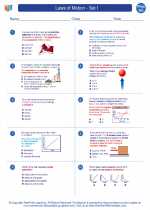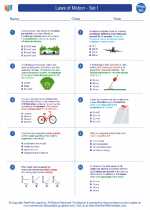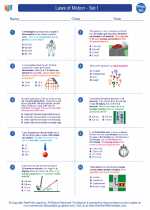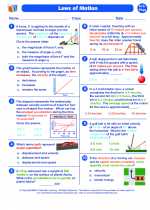Hygrometer: Understanding and Study Guide
A hygrometer is a device used to measure the moisture content or humidity in the air. It is an important tool in various fields such as meteorology, agriculture, and manufacturing, where precise humidity measurements are crucial.
Types of Hygrometers
There are several types of hygrometers, each with its own principles of operation:
- Psychrometers: These hygrometers use the cooling effect of evaporation to measure humidity. By comparing the temperature of a dry bulb and a wet bulb thermometer, the relative humidity can be determined.
- Electrical Hygrometers: These devices measure humidity by utilizing the electrical properties of certain materials that change with moisture content.
- Gravimetric Hygrometers: Gravimetric hygrometers measure humidity by determining the change in weight of a substance as it absorbs water from the air.
- Optical Hygrometers: These hygrometers measure changes in the optical properties of a material as it absorbs moisture.
Uses of Hygrometers
Hygrometers have a wide range of applications, including:
- Weather Forecasting: Hygrometers are used to measure humidity levels in the atmosphere, which is crucial for weather prediction.
- Agriculture: Monitoring humidity levels in greenhouses and agricultural environments helps in optimizing plant growth and preventing diseases.
- Industrial Processes: Many manufacturing processes require specific humidity levels for optimal product quality, making hygrometers essential in controlling these conditions.
- Healthcare: In healthcare facilities, maintaining proper humidity levels is important for patient comfort and preventing the spread of infections.
Study Guide
To understand hygrometers more deeply, consider the following topics for further study:
- Principles of Humidity Measurement: Explore the different methods and principles behind humidity measurement, such as psychrometry, capacitive sensing, and moisture absorption.
- Calibration and Accuracy: Learn about the calibration processes for hygrometers and the factors that can affect their accuracy, such as temperature and pressure.
- Applications in Various Fields: Research specific examples of how hygrometers are used in meteorology, agriculture, industrial settings, and healthcare to understand their practical significance.
- New Developments: Investigate the latest advancements in hygrometer technology, such as wireless and remote sensing capabilities, and their impact on different industries.
By delving into these topics, you can gain a comprehensive understanding of hygrometers and their significance in various domains.
[Hygrometer] Related Worksheets and Study Guides:
.◂Physics Worksheets and Study Guides High School. Laws of Motion - Set I
Worksheet/Answer key Laws of Motion - Set I
Laws of Motion - Set I  Worksheet/Answer key
Worksheet/Answer key Laws of Motion - Set I
Laws of Motion - Set I  Worksheet/Answer key
Worksheet/Answer key Laws of Motion - Set I
Laws of Motion - Set I  Worksheet/Answer key
Worksheet/Answer key Laws of Motion - Set I
Laws of Motion - Set I 

 Worksheet/Answer key
Worksheet/Answer key
 Worksheet/Answer key
Worksheet/Answer key
 Worksheet/Answer key
Worksheet/Answer key

The resources above cover the following skills:
PHYSICAL SCIENCE (NGSS)
Energy
Students who demonstrate understanding can:
Develop and use models to illustrate that energy at the macroscopic scale can be accounted for as either motions of particles or energy stored in fields.